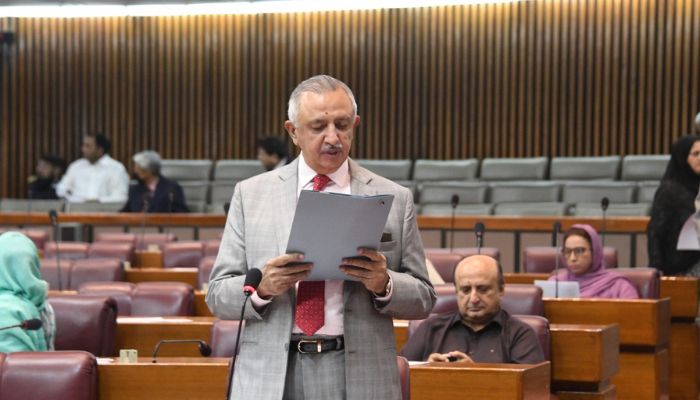NA passes bill to limit NAB authority over private transactions
The bill shall come into force immediately upon becoming an Act of Parliament
August 04, 2022

- National Assembly passes National Accountability (Second Amendment) Bill 2022.
- The bill attempts to limit NAB authority over private transactions.
- The bill shall come into force immediately upon becoming an Act of Parliament.
After suspending the scheduled question-hour on Wednesday, the National Assembly passed the National Accountability (Second Amendment) Bill 2022. The bill attempts to limit the National Accountability Bureau's authority over private transactions (NAB).
Shahadat Awan, minister of state for law and justice, introduced the bill in the House. The bill shall come into force immediately upon becoming an Act of Parliament and shall be deemed to have taken effect on and from the beginning of the National Accountability Ordinance, 1999. (XVIII of 1999). It alters the 1999 National Accountability Ordinance.
The law was carried despite a low turnout in the House. None of the opposition members, including Dr. Fehmida Mirza, raised the issue of quorum, although they did protest the absence of the ministers in question from the House.
The National Accountability (Second Amendment) Bill, 2022, limits the NAB's pecuniary authority to only taking action against mega-scandals. Furthermore, it has been proposed that supplementary references be filed only with the court's consent in order to speed the court's processes within one year.
According to the bill, investigation officers must not harass someone during an investigation or inquiry, and they must restrict their queries to those related to the investigation or inquiry or for obtaining evidence. According to the bill, the accused must be informed whether he or she has been summoned as an accused or a witness, and information must be provided to enable him to give testimony.











